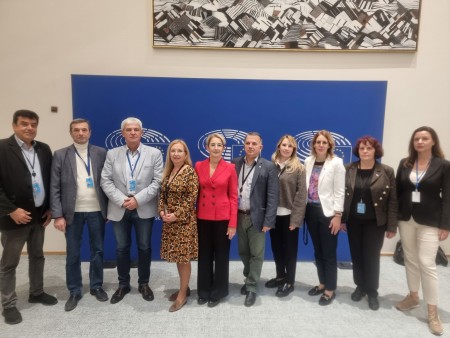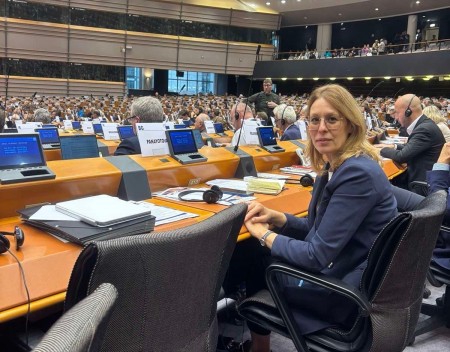The Bulgarian Chamber of Commerce and Industry (BCCI) – the oldest and leading employers’ organization in Bulgaria – has once again taken its seat within the Employers’ Group of the EESC during its inaugural plenary session, held on 21–23 October 2025 in the European Parliament in Brussels.
Dr. Monika Panayotova, member of the Euroclub at BCCI and university lecturer at the University of National and World Economy (UNWE), was elected as one of Bulgaria’s four representatives in the Employers’ Group of the EESC. She will serve in the External Relations (REX) and Employment, Social Affairs and Citizenship (SOC) sections, working on topics related to entrepreneurship and digital transformation, the European Digital Identity Wallet, the European defense industry, and EU enlargement policy, with a focus on the role of civil society and business in supporting the European perspective of the Western Balkans.
“Business, and in particular small and medium-sized enterprises, are the driving force of Europe’s growth, innovation and employment. Europe can succeed only if it allows its entrepreneurs the freedom to create, invest and grow. The organized civil society and business at the European level can play a constructive role in strengthening the connection with the Western Balkans candidate countries. Less bureaucracy and more conditions for competitiveness are the path towards a sustainable, secure and socially just Europe,” said Dr. Monika Panayotova, BCCI representative to the EESC.
The Employers’ Group in the EESC consists of 107 members, 47 of whom are newly elected. In its future work, the group will focus on six key pillars of transformation:1. Innovation and technology; 2. Green growth and industrial strength; 3. SMEs and entrepreneurship; 4. Work and skills; 5. Energy and infrastructure; 6. Better law-making, smart and efficient regulation
Sandra Parth, Head of the Brussels Office of the German Economic Institute, was elected as President of the Employers’ Group.
For a term of two and a half years, Séamus Boland of Ireland, from the Civil Society Organizations Group, was elected as President of the European Economic and Social Committee. He emphasized his ambition to place “European civil society at the heart of Europe”, reminding that “Democracy is fragile – like a flower that we must nurture every day.”

